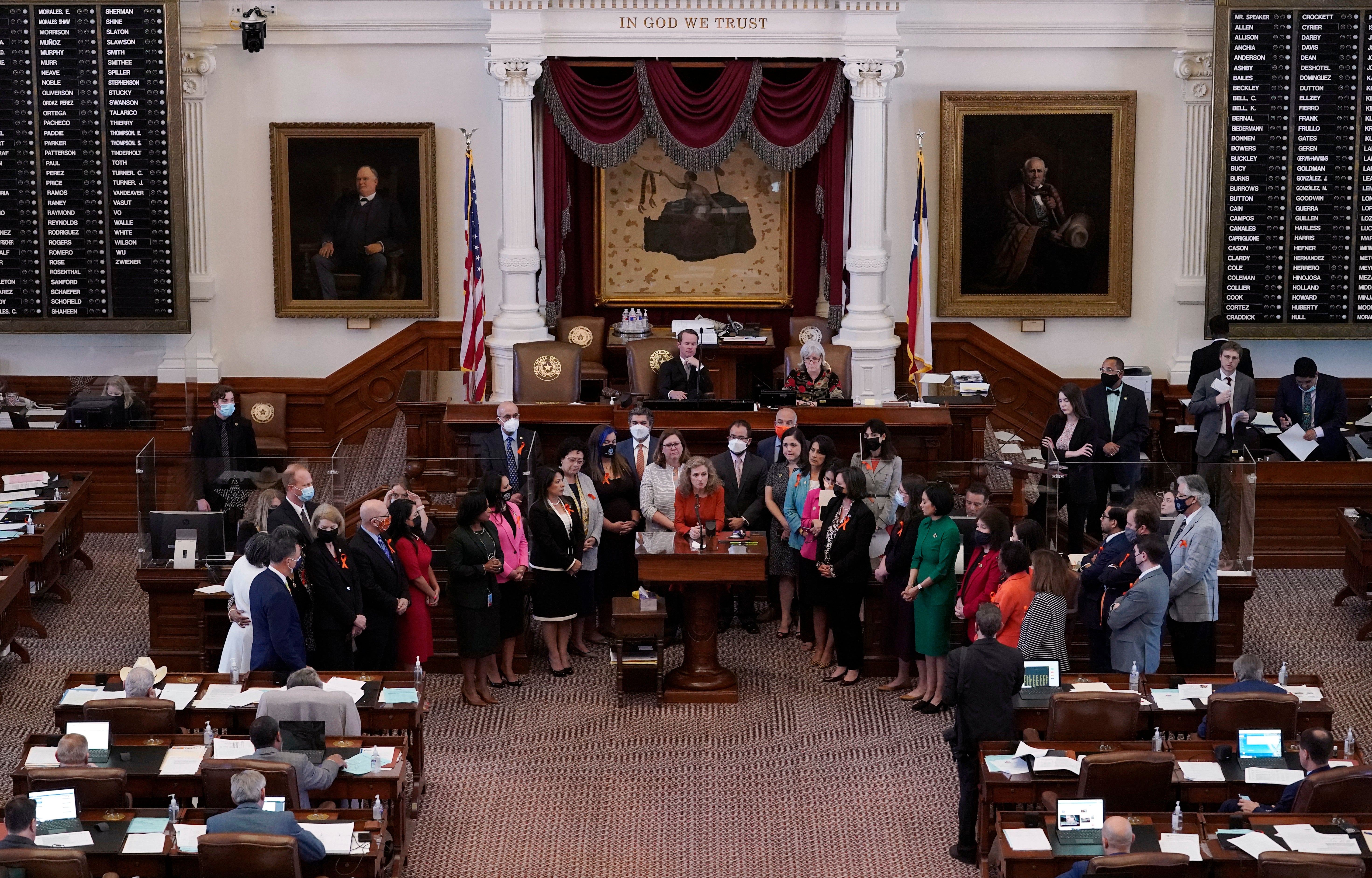‘The whole purpose is to sow legal chaos’: Why the Texas abortion ban is even worse than it first seems
‘This just means these right to life organizations can go out and sue all the women’s clinics and pretty much obliterate that side of women’s health in Texas. Because even if they’re not successful they’re still tying them up in court. The whole purpose of it just seems like it’s to sow chaos’


Texas’s draconian six-week abortion ban — which allows private citizens to sue other private citizens they suspect of helping others obtain abortions — went into effect at midnight on September 1st. And it wasn’t just Texans who worried about the landmark legislation, the first of its kind since Roe v. Wade that hasn’t been struck down by the Supreme Court. Abortion rights activists, legal journalists, and abortion providers across the United States worry that this bill spells the end of Roe altogether.
Though technically a red state, with a Republican governor and Republican-controlled legislature, this is an unpopular bill. And it is particularly unpopular with those who it will impact the most. Statistics show that nationally, younger generations overwhelmingly support the right to legal abortion. And a UT Texas study in February indicated that a slight majority of Texans believe abortion laws in the state should be less strict, not more so.
“Any person who is in the fight for reproductive justice, who has been on the ground working for it, has seen this coming. And other people have been like, you’re being crazy, that’s flippant, you’re being disingenuous. No, this is what was coming,” said abortion rights activist Gem Adler. “I got pregnant once and I threw up so hard I threw my back out. And so at the abortion clinic the lady is like, ‘Do twins run in your family?’ And yeah, my dad has a twin. And so the reason I was so violently sick is becaue I was going to be carrying twins. And so if I didn’t have that abortion — I was at a terrible place in my life — if that hadn’t happened for me, I don’t think I would have survived the pregnancy. And so, I just don’t want other women to have to go through that.”
Now that the new law has officially gone into effect, people living in the state worry what this spells for the future, and argue that it doesn’t reflect the spirit of personal freedom the state is supposed to represent. “Personally, it’s very frustrating for me because there are so many activists and organizations and people on the ground doing grassroots work, and you turn around and these are the things coming out of our state. These are the things that make national headlines,” said Heather Turner (they/them). “There must be some people that support it otherwise it wouldn’t be going through the legislature, but in terms of my group — a lot of very young people, a lot of queer [people] and people of color — we don’t support it and feel very disenfranchised and just really frustrated with the lack of representation we get. There are so many better issues that we could be spending our time on and instead it feels like we’re having to constantly claw back progress.”
Jaime Nunez-Vizcaya says that he understands that the stakes are lower for him because he cannot get pregnant himself, but this bill still has the possibility to take away his freedom to choose if and when he decides to become a parent. “Me and my significant other, she and I feel the same way on this topic. We obviously use contraceptives and are being safe and not trying to have a child right now for many other reasons other than we need money, we’re too young, and can’t afford that. If we do have a child, it is on our own terms,” he said. Nunez-Vizcaya explained that he believes in gun rights, with restrictions, and other personal freedoms, so why would the right to choose not be included among them? “If you feel that you don’t have as much rights or as little rights in this world, whether it be the right to not wear a mask, the right to not have a vaccine — which does affect other people — wouldn’t this be part of those rights?”
The ban is also unpopular among those who wouldn’t seem to be directly impacted, like 62-year-old Dale G., who asked not to use his last name. Dale has a 33-year-old daughter, and explained that as a liberal in Dallas, most of his circle is also made up of liberals. While the cities in Texas are more populous, diverse, and left-leaning, these voices are often drowned out in the media and in the state legislature. “In a presidential election, usually like 40 to 45 percent will be voting for the Democratic candidate and that’s a big chunk,” he said.
“The really outrageous part is that even in the law itself, there’s no state enforcement of this law. It explicitly states that,” Dale explained. “When I first heard about the law I thought, oh, that just means these right to life organizations can go out and sue all the women’s clinics and pretty much obliterate that side of women’s health in Texas. Because even if they’re not successful they’re still tying them up in court. The whole purpose of it just seems like it’s to sow chaos.” He continued, “It’s so evil to me. It’s undermining the purpose of the law itself.”
Dale isn’t the only one worried about the wider-ranging impacts of this ban. Turner also noted that clinics that provide abortions are often where nonbinary people like themself and other marginalized identities go to receive any kind of reproductive care. They fear “the flight of physicians, and people who are willing to provide abortions leaving the state.”
“A lot of times those providers are also more trans-inclusive, at least on a per ratio basis, than the rest of physicians,” they continued. “The fact that especially the trans community could be losing access to those physicians when we have so few physicians in the first place that are really willing to listen to us and our needs — that’s a little scary. It’s really worrisome that we could be losing that important part of our community.”
“They’re about putting women in jail,” added Gem Adler. “In the end I don’t really see anything except fascist control of bodies. There’s no other reason for it, because they’re not fighting for medical care for people. They’re not fighting to keep these shootings out of the schools.”

Join our commenting forum
Join thought-provoking conversations, follow other Independent readers and see their replies